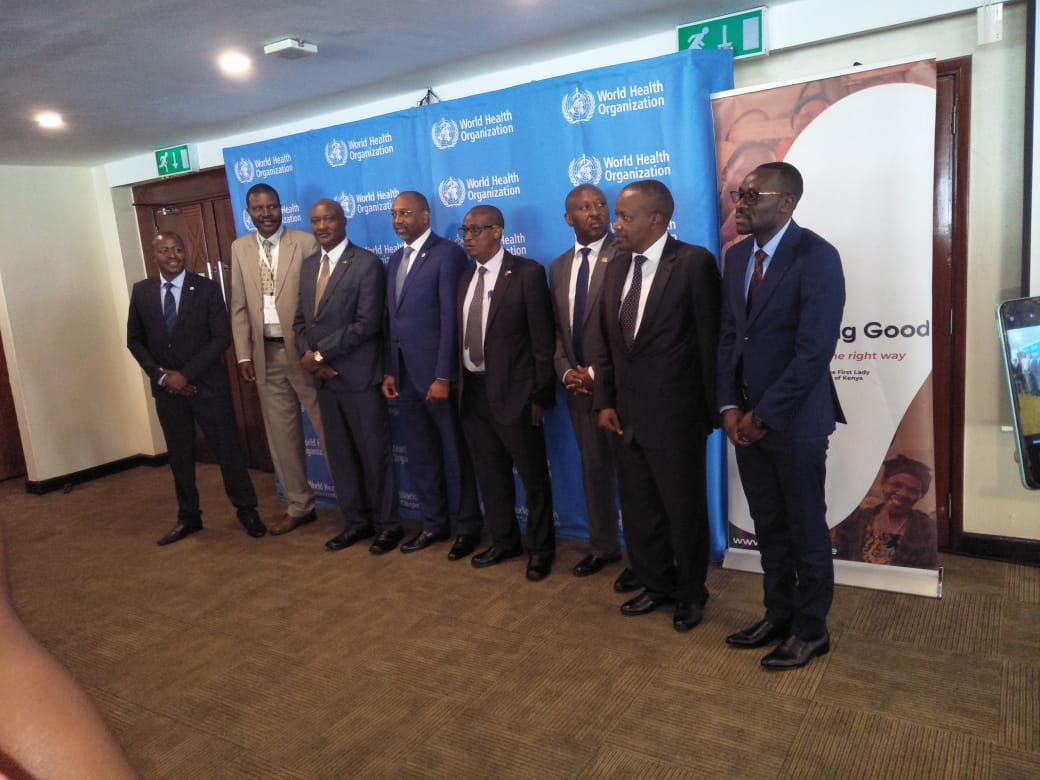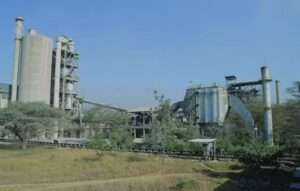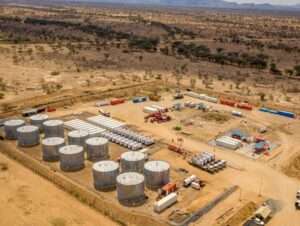
NAIROBI, KENYA 16-The Mama Doing Good Initiative, in conjunction with the World Health Organization (WHO) and the University of Liverpool, have launched a campaign, which aims to combat household air pollution and propel the transition from polluting energies, to safe cooking, lighting and heating energies in Kenya.
The initiative of the first lady is as a result of the alarming health and death risks, caused by unsafe and polluting energies.
In consonance with the 2019 official national census report, 67% of Kenyans rely on solid fuel such as wood, and rock waste, 24% on liquefied Petroleum gas (LPG), 18% on paraffin and a similar proportion on charcoal as the main cooking fuels. Over 90% of public institutions are highly dependent on solid biomass for cooking.
Burning of these solid fuels in absence of enough oxygen, leads to production of dangerous gases such as Carbon monoxide (CO), Sulphur oxide(SO), and Nitrous oxide. Inhalation of these gases causes severe chest pains and headaches, and eventually causing death.
According to the ministry of health, household air pollution is responsible for 6% of diseases annually spotlighting those women, children under 5 years and pregnant women, are the most vulnerable. This is due to the heavy reliance on solid fuels such as wood, charcoal, rock waste and kerosene.
“House hold air pollution is responsible for 42 deaths per 100,000 making it a risk factor to health. It is unfortunate that women, children under 5 and pregnant women, suffer the highest as they are the most exposed,” said Antony Wainaina representative Ministry of Health during the household air pollution workshop.
According to KEMRI, over 23,000 people per year die in Kenya, due to house hold air pollution. This astounding number overtakes that of the number of deaths caused by malaria and traffic accidents per year, giving it the nickname “silent killer” at our homes.
“Household air pollution is a cause of over 23,000 premature deaths in Kenya each year. A staggering toll that passes the number of deaths caused by traffic accidents and malaria,” said Elijah Songok, Director general, Kemri during the household air pollution workshop.
ALSO READ
Innovative solutions are needed to tackle mental health, experts suggests
Meru MCAs files fresh motion to impeach Governor Mwangaza
The Pentecostal church calls President Ruto’s stand on LGBTQ
According to the world health organization, 3.2 million people die prematurely every year globally due to household air pollution related diseases: 32% Ischemic heart attack, 23% stroke,21% lower respiratory infections, 19% chronic obstructive pulmonary disease and 6% lung cancer.
According to WHO, 2.3 billion people in the world relies mainly on polluting fuels for cooking, Africa being the most burdened. Over 970 million Africans lack access to clean cooking solutions putting them at a disproportionate health risk due to poisoning from polluting fuels.
The mama looks good initiative aims at propelling the achievement of the national goal which is enabling 100% access to modern energy cooking services by 2028.
The initiative sets to raise awareness on the importance of clean energies such as gas, electricity and biogas and their potential positive impacts in their health and also the climate.
The initiative sets to train over 2,500 women on clean cooking, lighting and heating solutions to curb house hold air pollution, especially in the villages where access to green energy is a challenge and cooking with firewood is considered a way of life.
“It is clear that women will drive the transition to clean cooking and we must empower them through education and access to alternative clean cooking fuels,” said John Chumo, CEO Mama doing good initiative, representing the first lady during the household air pollution workshop.






